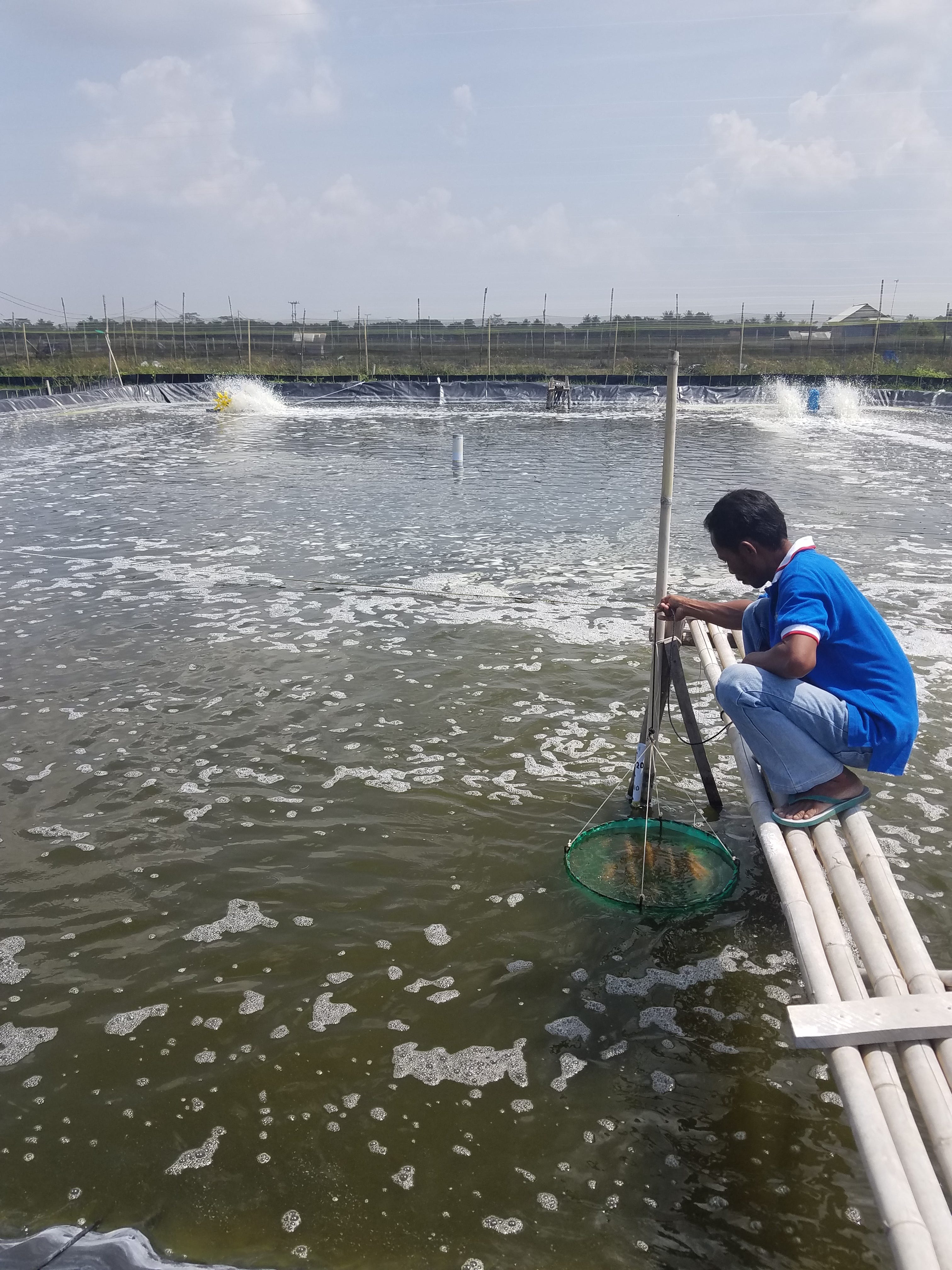
In Margasari, Indonesia, a shrimp farm has undergone a big transformation.
A once-sprawling, sandy, porous channel of water used to flush untreated shrimp farm waste into the local water supply. Now, two contained ponds of water — carefully dug, lined, and chock-full of responsibly-raised shrimp — are helping the farmer earn nearly double what he made before the transformation, while reducing waste and other environmentally-harmful impacts.
This farmer, Ali Nurohmat, owns two of fourteen shrimp ponds in Margasari and Kekatung where Rare is piloting an investment strategy that could change the blueprint for sustainable aquaculture investments.

Shrimp farming, or aquaculture, can be resource-intensive and environmentally destructive. The ponds typically take up a lot of land and produce a stream of organic waste, chemicals, and, at times, antibiotics that pollute groundwater and coastal waterways. The ponds themselves can get infected with pathogens that threaten the shrimp, eventually decreasing farming yields.
Many systems operate like this because farmers — especially small-scale shrimp farmers — don’t have the financial resources or know-how to transition to more sustainable practices. A more responsible approach to shrimp farming has the potential to improve farmer incomes and create financial incentives for sustainability. So if farmers need financing and hands on training, or technical assistance, to learn and adopt better practices, why not create a direct impact investment vehicle that could provide both?
With support from the Walton Family Foundation, Rare is testing an impact investing model to provide both debt financing and technical assistance to shrimp farmers in Indonesia. The investment product, through loans that farmers repay at affordable rates, has already financed shrimp farm renovations, such as upgrading water supply, discharge, and treatment systems, to meet best practices in shrimp aquaculture. It also makes financing available for farmers to purchase farm inputs such as quality shrimp fry to reduce chances of disease outbreak.
“We’re excited to see this level of impact on the ground in just one year. Rare’s work with this project blends expertise in impact investing, community engagement, and behavior change and we’re proud to partner with them.”
Peter Bryant, Senior Program Officer, Walton Personal Philanthropy Group
The results from the first harvest after the farm renovations are promising: shrimp farms increased their yields by at least eight times and revenues increased by more than five times. Across the board, farmer incomes have more than doubled, even after loan repayments. Early environmental indicators show that all farms are operating within the range of sustainable shrimp farming standards defined by the Aquaculture Stewardship Council and World Wildlife Fund benchmarks. In addition, as farmers repay the loans, the investment vehicle becomes self-financing and creates potential for scale.
In addition to technical assistance and financing, connections up the supply chain (so that the farmers can sell the shrimp at a profitable price), and community engagement are also essential. In this financing structure, community leaders have a role in managing the funds that pass through the investment vehicle. This increases accountability and gives more community members a stake in the success of these farms.
“What makes our approach unique is the combination of technical assistance with targeted financing. A lot of groups will do one or the other, and the projects or investments come up short. Our partner on the ground, CP Prima, has also been essential. They’ve provided technical assistance, provided farm inputs, and really been key in helping the farmers adopt more sustainable and productive practices.”
Manuel Bueno Vera, Senior Director, Sustainable Markets, Rare
This combination of smart debt financing through loans, technical assistance, and community engagement is showing enormous promise. We are excited to see how this strategy continues to shift aquaculture in this region toward more sustainable practices.